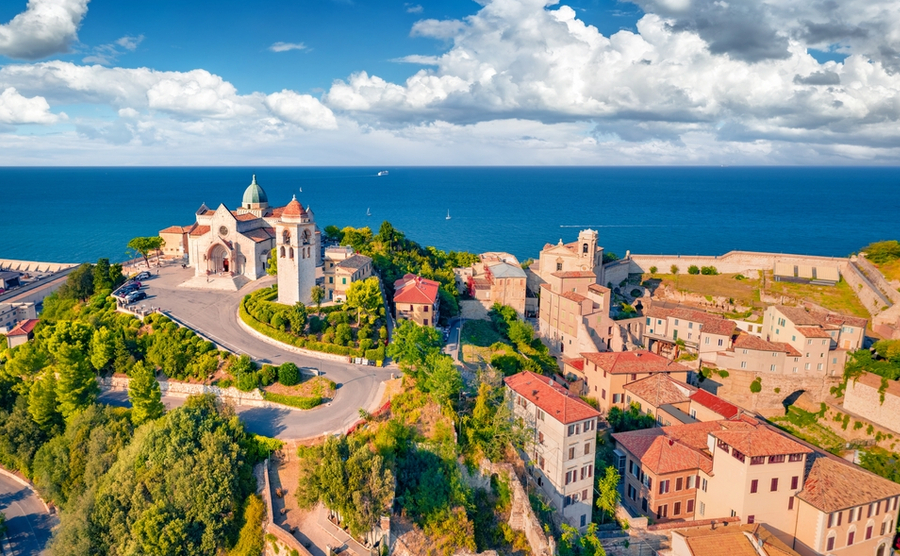New findings reconfirm the health benefits of adopting the Mediterranean diet and its lifestyle, wherever you call home in the world. We take a closer look and highlight the other reasons why the Med is so good for your wellbeing.
Eating and living the traditional Mediterranean way, whether you reside in the sunny region or not, should give you a chance of living longer than if you followed a less healthy lifestyle. This is according to a recent study that confirmed how the combination of Mediterranean diet (MedDiet) and lifestyle could cut your chances of dying from cancer by 28 per cent and from heart disease by 29 per cent.
The research, led by Harvard Chan School in conjunction with a Madrid university, tracked the health of a 40 to 75-year-old population sample in England, Wales and Scotland for nine years. The findings reinforce why the MedDiet is championed as one of the healthiest in the world. Its potential to lower blood pressure and cholesterol and deter type 2 diabetes are already well documented. Meanwhile, ongoing studies are showing that the MedDiet could help reduce the risk of developing dementia.
This is all good news for anyone planning to relocate to a Mediterranean country and embrace the local way of life.

A Mediterranean lifestyle and diet, intriguing, isn’t it?
What is the Mediterranean diet?
So what sort of things ideally should you eat when you move to the sunshine. The traditional MedDiet is primarily a plant-based one with the addition of fish and poultry and some dairy products. Seasonal fruit and vegetables as well as beans, legumes and wholegrains feature a lot. But arguably the real gamechanger is the regular consumption of olive oil, ideally extra virgin, and other healthy fats, obtained usually from oily fish, unsalted nuts and seeds. And yes, you can drink just don’t overdo it – wine should be your preferred tipple. Incorporating just few of these things into your diet should make a difference, say nutritionists.
It’ll be down to you just how much you embrace the MedDiet, but it should be as easy to do at home as eating out. These days most resorts offer international restaurants and menus featuring all types of cuisine – and yes, treating yourself to these on occasion is fine. But follow the locals and you should soon sniff out more traditional eateries, usually away from the main drag or busy tourist areas, with affordable daily menus based around the MedDiet.
It’s more than just the food!
It’s not just the things you eat that characterise the MedDiet – equally important aspects include how you select, prepare and consume your food. BBC Good Food, reminds us that “fast and processed foods are eliminated and replaced with whole foods, and meals are social events, being shared with friends and family”.
From shopping at fresh produce markets and carefully choosing your fruit and veg to queuing for locally sourced fish or seafood, the experience of preparing meals is all part of the MedDiet process, not to mention it’s enjoyable.
Combining all these things with a slow-paced Mediterranean lifestyle that has “an emphasis on rest, exercise, and socializing with friends” helps to maximise your chances of living longer, according to the Harvard Chan School research.

A balmy climate is the norm in Mediterranean countries
Why climate counts
Who doesn’t love waking up to sunshine and blue skies? It’s the norm for most the year in typical Mediterranean countries. Not only does it help your mental health, trigger lots of happy hormones and put a smile on your face, but a balmy climate can be good for your body too.
Known benefits of controlled exposure to sunshine include a boost to the immune system, increased production of Vitamin D, which has numerous useful functions in the body, and a lowering of both cholesterol and blood pressure.
The combination of warmth and humidity levels can also relieve certain health conditions, especially arthritis and muscle and joint related problems. No wonder so many Northern Europeans prefer to spend the winter months by the Med where it’s warmer than back home. Throw in the cleaner, sea air you get in coastal areas and it’s understandable why many new arrivals to Med destinations report improvements in respiratory conditions, such as asthma, as well as airborne allergies.
Outdoors and more active
Without even trying, you spend more time outside when you live in a warm climate. Most expats abroad live in coastal resorts, within walking distance of their local shops, social clubs, restaurants and the local promenade – being able to walk to all amenities is a popular must have for property-buyers in the Med. The lifestyle is more conducive to year-round outdoor leisure activities too, whether it’s golf, bowls or swimming in the sea. You won’t realise it, but before you know it you’ll be doing more exercise!

Where in the Med would you relocate to?
Our survey says
The good news is that many readers already know what is good for you! In our most recent Your Overseas Home survey, ‘healthier living’, ‘relaxed lifestyle’ and ‘healthier food’ were amongst the most common reasons for moving to a Mediterranean country. Some of you highlighted how the climate was better for certain health conditions, including osteoporosis. What better reasons are there to move abroad than better health!

